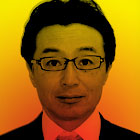
|
| Nobuyuki Saji. |
| 三菱UFJ摩根士丹利证券有限公司 |
| “Saji-San是一位世界一流的经济学家,提供真正的日本景观。” |
Nobuyuki Saji.是一名就职全日研究团队名人堂的成员,连续十分之六年级上名单。“Saji-San不仅讨论了宏观经济,而且还讨论了个别行业 - 有时候个人公司甚至,”甚至是一个买边的爱好者。“这对像我们这样的股票投资者非常有帮助。”三菱UFJ摩根士丹利证券公司经济学家比他对总理Shinzo Abe刺激建议的可能影响的同行更乐观。例如,他认为,许多投资组合管理人员夸大了弱币的感知积极影响。“From an exports perspective, since a lot of Japanese manufacturers shifted their facilities overseas in the past ten years, yen depreciation doesn’t help to increase exports apart from limited items such as auto parts,” explains Saji, 54. “Also, since depreciation oppresses people’s standards of living through price increases, personal consumption will decrease.” The autos sector will be “the only beneficiary” of the falling currency, he adds. Saji predicts that real gross domestic product growth for fiscal 2013, which began this month, will clock in at 1 percent — the Bank of Japan is projecting 2.5 percent — and will decline to 0.8 percent next year. He is also keeping a close watch on current account balances of Southeast Asian countries. Indonesia, Saji notes, experienced its first annual trade deficit in 2012, and its banking system’s loan-to-deposit ratio is rising. “Japan has a lot of loans to Southeast Asian countries, and many financial and nonfinancial corporations operate businesses in this region,” he says. “We have to pay close attention.” —托马斯W. Johnson. |

